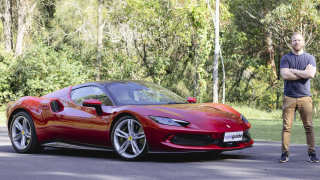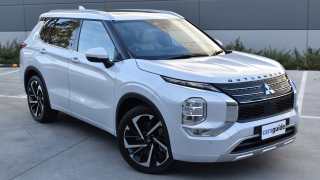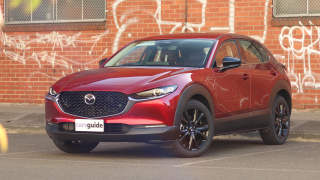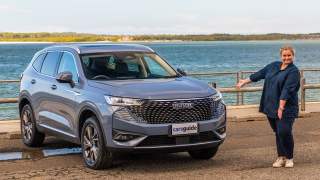
Toyota FCV Concept Review
What we like
- The future
- Green
- High tech
What we don't
- Likely to be expensive
- Not here yet
- Range and performance TBC
What we like
- The future
- Green
- High tech
What we don't
- Likely to be expensive
- Not here yet
- Range and performance TBC
A few years ago all the car makers were talking about hydrogen powered fuel cell cars. A few concept models were produced and we were allowed to drive some of them briefly such as the BMW Hydrogen 7. Then just as quickly as they appeared everything went quiet again. That is until the current Tokyo motor show where Toyota has taken the wraps off a new hydrogen powered concept that it will offer for public sale within two years.
TECHNOLOGY
In a fuel cell car, hydrogen gas combines with oxygen from the air inside the fuel stack to produce water and electricity that powers the vehicle. The only engine emissions are harmless water vapour.
The beauty of the system is that, apart from the fact it runs on hydrogen, it works pretty much the same as existing cars. The hydrogen gas is stored in liquid form in cylinders at extremely low temperatures. Early hydrogen-powered prototypes were bulky and had a limited range, but Toyota has managed to make the whole thing smaller and more efficient.
The big issue going forward remains providing the necessary infrastructure -- which means plenty of hydrogen filling stations.
TOYOTA FCV
The FCV uses Toyota's proprietary small, lightweight fuel-cell stack and two 70MPa (MegaPascal) high-pressure hydrogen tanks. The fuel-cell stack produces 3kW per litre or more than twice that of previous concepts, with a total power output of at least 100kW. But Toyota has not put a figure on the torque output of the car.
The system is equipped with a high-efficiency boost converter, that has enabled it to reduce the size of the motor and the number of fuel cells. The result is a smaller system that offers enhanced performance at reduced cost.
PRICE
Toyota says its first mass-produced fuel-cell sedan the FCV (Fuel Cell Vehicle) is in the final stages of development. At this stage the car is expected to cost less than 10 million yen (A$100,000) when it is introduced in Japan’s four main urban centres of Tokyo, Chukyo, Kansai and Fukuoka as well as parts of Europe and the United States.
But the target is to bring down the cost to a figure closer to $50,000 bringing the car within the reach of the average punter.
The FCV will have a range of at least 500km and can be refuelled in as little as three minutes making it just like a petrol car to own and run. Fully fuelled it could in theory provide enough electricity to meet the daily needs of an average home (10kWh) for more than a week.
DRIVING
The FCV Concept that we drove in Nagoya this was not quite as fancy as the show car but contained exactly the same powertain. It has a similar wheelbase to a Camry, but is longer, taller and narrower and seats four.
Explaining the four-seat arrangment, Toyota says the car will be marketed as a premium product with a sporty feel much the same as the Holden Volt. Project engineers say the car offers the same level of performance as a Volkswagen Golf.
The FCV certainly feels and drives just like a normal car. Some fine tuning of the engine remains to be done and the interior is nowhere near ready, but the final production model is expected to look very much the same as the show car.
Toyota Australia’s Tony Cramb said the FCV Concept showed Toyota was a pioneering company that achieved great results when it set its mind to a challenge.
"When Toyota introduced the Prius in 1997, no-one knew what a hybrid was – or that Toyota had been developing the technology for more than 30 years," Mr Cramb said.
"As the leader in hybrid technology, it is a natural step for Toyota to consider alternate fuels such as hydrogen because of its enormous potential in supporting energy diversification and zero emissions while offering the same convenience as today’s petrol-powered cars."
Toyota predicts widespread use of hydrogen to fuel cars from the 2020s.












